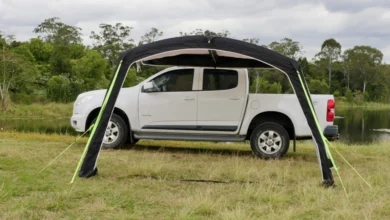How to Choose a Reliable Used Car

Buying a used car can be a smart and budget-friendly decision—but only if you choose wisely. With countless options on the market, finding a vehicle that’s dependable, safe, and suited to your needs requires careful research and attention to detail. A reliable used car should offer solid performance, a clean history, and minimal future repair costs. From checking maintenance records to inspecting the vehicle’s condition and verifying its title, each step plays a vital role in avoiding costly surprises. This guide will help you confidently navigate the process and make an informed decision that will serve you well for years.
Determine Your Needs and Budget
Many buyers find visiting a reputable used car dealer Tampa is a great way to compare options that fit their needs and finances. These dealers often provide an inventory with a range of makes and models for every price range.
Research Reliable Models
Once you’ve defined your requirements, research which vehicle models are renowned for durability and reliability. Brands like Toyota, Honda, and Subaru are well-known for producing vehicles that retain their value and require minimal maintenance over time. Consulting unbiased sources such as reviews from automotive journalists and publications like Consumer Reports can give you a clearer picture of long-term reliability, cost of ownership, and any common issues to watch out for in used cars.
Check Vehicle History Reports
Always obtain a comprehensive vehicle history report before making any purchase decisions. This report can reveal vital information, including accident reports, flood or fire damage, title issues, odometer rollbacks, and the maintenance history. Services such as Carfax and AutoCheck allow you to see these details at a glance, giving you peace of mind that you aren’t inheriting hidden problems. This step is essential for protecting yourself from costly surprises down the road.
Exploring multiple reputable dealerships in Tampa FL allows you to compare vehicle conditions, history transparency, price points, and included warranties if you’re also considering where to buy. Reputable dealerships are more likely to provide verified history reports and offer additional buyer protections for greater confidence.
Inspect the Car Thoroughly
A detailed inspection is essential. Start outside by checking paint, rust, dents, and panel alignment for past accidents or repairs. Examine tire and brake wear as care indicators. Inside, inspect upholstery, controls, electricals, and A/C. If possible, have a mechanic perform a pre-purchase inspection to catch hidden issues.
Take a Test Drive
A test drive is your chance to evaluate a used vehicle’s real-world condition and comfort. Pay attention to acceleration, braking, steering responsiveness, and the smoothness of the ride. Listen for strange noises, rattles, or vibrations that indicate wear or mechanical problems. Don’t rush this process—drive on various roads, test the air conditioning, radio, and other features, and ensure clear visibility from all seat positions.
Consider Certified Pre-Owned (CPO) Vehicles
CPO vehicles combine the affordability of a used car with additional safeguards commonly reserved for new vehicles. These cars are typically subject to rigorous multi-point inspections and are sold with an extended manufacturer’s warranty, offering added peace of mind. While CPO vehicles might have a slightly higher price tag, their protection against defects or early repair needs can justify the cost.
Evaluate Ownership and Maintenance Records
A clear and complete maintenance history is one of the best indicators that a used car has been well cared for. Look for vehicles that come with service records of regular oil changes, brake jobs, and any major repairs. Cars with only one previous owner and detailed service logs tend to be more reliable and can often command a slightly higher resale price, but this can be worth it for peace of mind.
Negotiate the Price
Research the vehicle’s history, condition, and comparable prices to negotiate a fair purchase price. Consider pre-approved financing for a focused negotiation. If terms don’t meet expectations, walk away. Evaluating needs, researching reliable models, reviewing history reports, and performing thorough inspections can increase the chances of securing a reliable used car and ensuring the best value for your investment.




